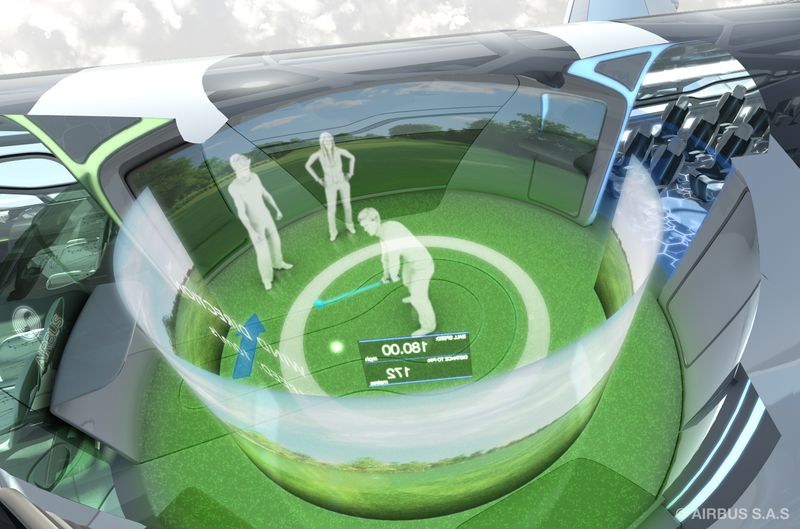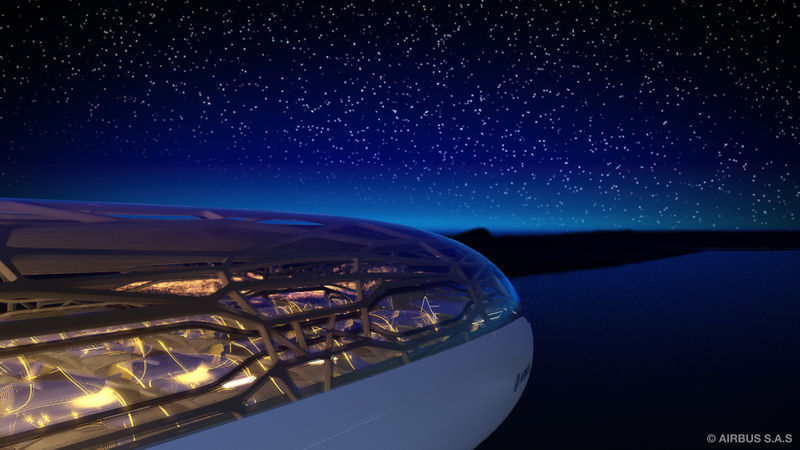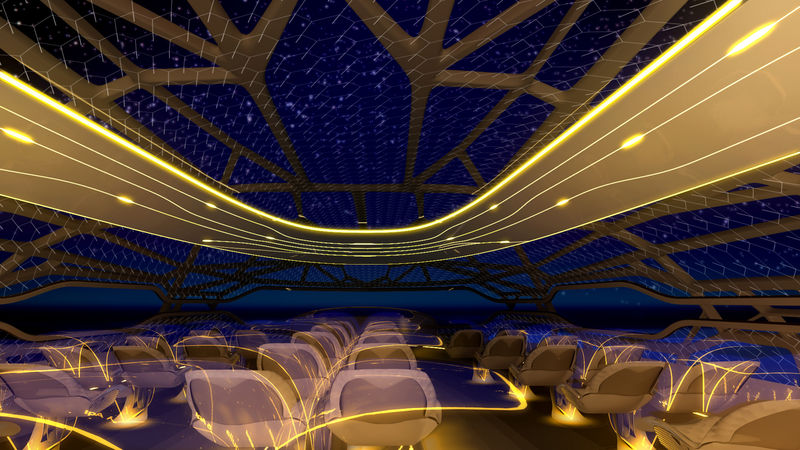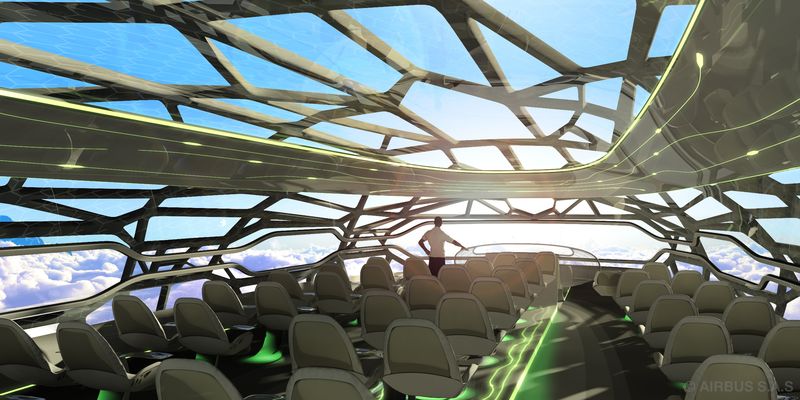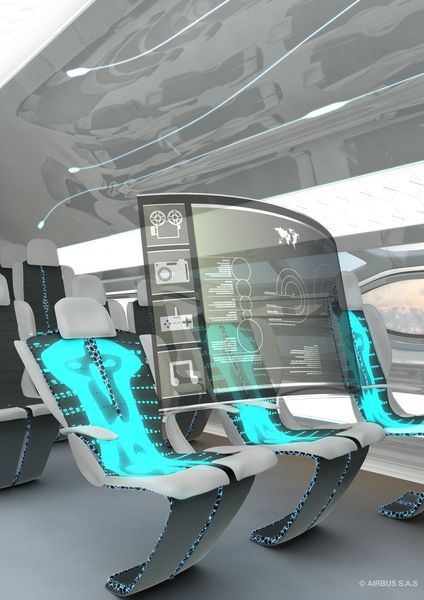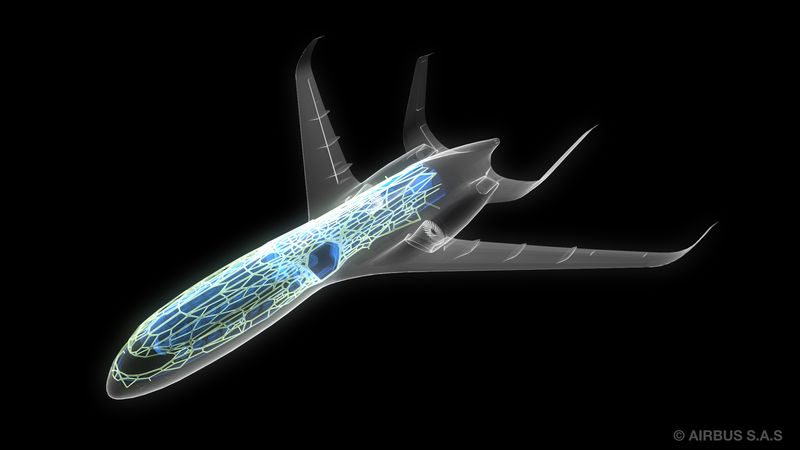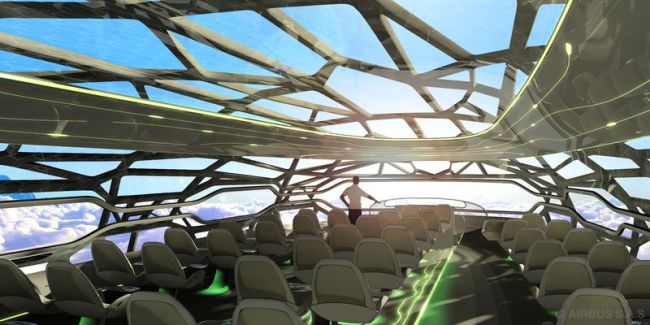
By the year 2050, snagging the window seat on an airplane will be a thing of the past — at least if Airbus’ vision of the future becomes a reality. In a lead-up to the Paris Airshow “Le Bourget,” the aircraft maker revealed today its plans for a “futuristic” flying machine, aptly dubbed the “Concept Cabin,” that includes “bionic” design, panoramic views, and customizable zones to satisfy even the most high-maintenance of passengers.
“The aircraft’s bionic structure mimics the efficiency of bird bone which is optimized to provide strength where needed, and allows for an intelligent cabin wall membrane which controls air temperature and can become transparent to give passengers open panoramic views,” reads the press release.
In the Airbus Concept Cabin, “personalized zones” will replace the various class-based cabin sections we all know and loath. These sections will offer “tailored levels of experience” that go beyond expanded leg room and complimentary champagne.

Take the “smart tech zone,” for example, which has a “chameleon style offering” for every fliers’ needs, from “simple to complete luxury service.” Or the “vitalizing zone,” which is “all about wellbeing and relaxation.” In this section passengers will breath “vitamin and antioxidant enriched air,” and enjoy “mood lighting, aromatherapy and acupressure treatments.” The Concept Cabin could even include an “interactive zone” with “virtual pop up projections” that can be customized “to whichever social scene you want to be in, from holographic gaming to virtual changing rooms for active shoppers.”
This all sounds mind-blowingly fantastic, especially compared to the bovine-esque conditions we’re all shuttled around in these days. And with nearly 40 years to get there, it’s entirely possible that this could become a reality for travelers of the future. But considering it’s still a shock if a flight comes with WiFi, we have a hard time believing such luxuries could actually become an affordable reality.
Check out more photos below and head here, “The Future by Airbus” for more about the Airbus Concept Cabin.
